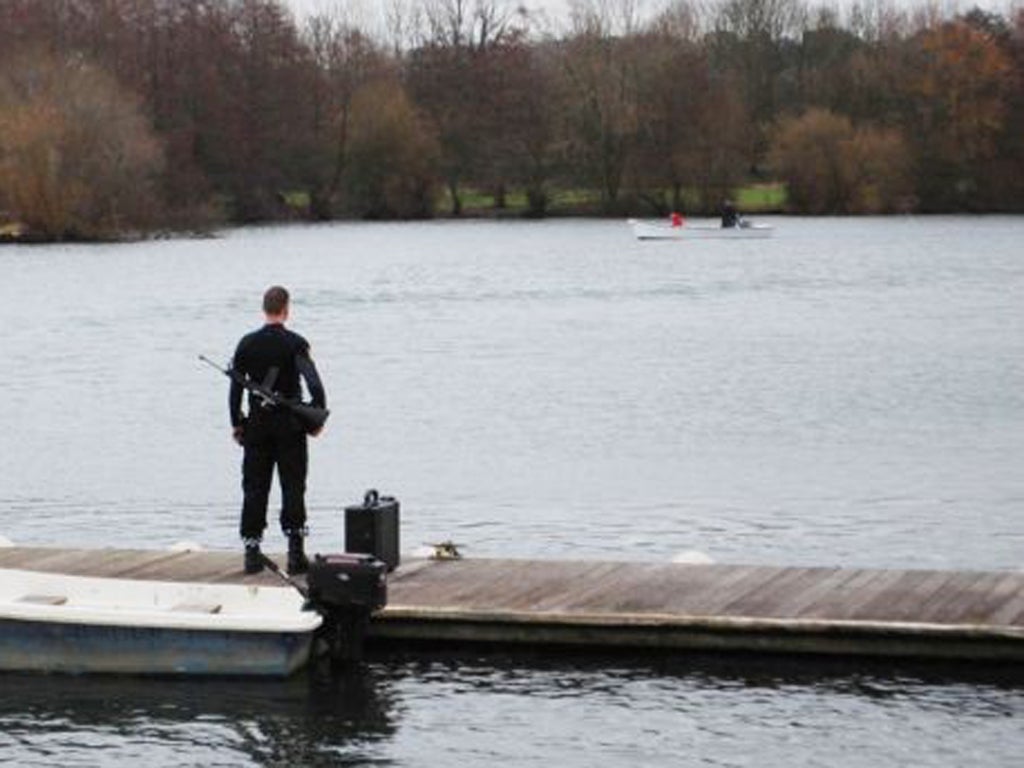The Utoya massacre: The cruellest twist of fate
John Appel's documentary 'Wrong Time Wrong Place' examines the role of coincidence in surviving disasters

On a calm, sunny day this May, a young Georgian woman called Natia revisited a small Norwegian island that she had last been on 10 months before. She walked to the seafront where she remembered going for an evening swim early on that first trip to the island. It was at this very place that her friend Tamta, who couldn't swim, was found, "just next to the water", on 22 July last year.
"Somehow I imagine Tamta felt a complete deadlock. To get into the water and try to swim was just as deadly for her as staying on the beach," Natia recalls of her friend, who was shot twice from behind. Tamta was the last victim of the massacre on Utoya which left 69 people dead. Nearly all of them were teenagers attending a socialist summer camp. Tamta was put in a terrible position: a man with a gun behind her, frozen water in front of her.
Natia escaped by hiding in a cave. She is one of several survivors interviewed in John Appel's new documentary Wrong Time Wrong Place, which opens the International Documentary Film Festival Amsterdam, the world's largest documentary festival.
Dutch director Appel's film isn't a piece of gory or sensationalist reportage. Nor is it concerned with politics. The killer's name isn't even mentioned in the documentary, although we do see fleeting newsreel footage of his later trial in Oslo while one of Appel's interviewees tells a grimly funny story about traveling over to the island on the same ferry as the mass murderer.
"It's not about him. He's like the devil, meaning the evil face," Appel says of Anders Breivik, the 33-year-old Norwegian man who first bombed government buildings in Oslo and then headed to Utoya to carry on his killing spree Instead, the documentary is pondering questions of fate and coincidence.
In every story Appel unpicks, good or bad luck are the determining factors. Whether people live or die is a matter of sheer chance. Three youngsters, one of them pregnant, hid in a toilet in Utoya. The killer was only a few feet away from them but didn't discover them or shoot through the door as they expected he would. Harald, the man back in Oslo who was mourning the death of his son in a base-jumping accident, only went to the office by chance that day as he should have been on vacation. That was his bad luck. He was five minutes earlier than he planned – and that was his good luck. "If I had gone to my office five minutes before, I would have been right by the car when it exploded."
Appel's idea for the documentary preceded the massacre on Utoya. Sounding just a little like the grim reaper, the Dutch documentary maker tells me he was waiting for a disaster.
"I wanted to make a film about fate and coincidence, and I knew I had to wait for some tragic event to happen, like a plane crash or some very big accident," he says. At first, he thought the massacre was too big a story for him but when he went to Norway a few weeks after the massacre, he quickly found the stories he was looking for. The film features some very grim amateur footage, shot shakily on mobile phone from the mainland as the killings were underway.
Ritah, the Ugandan girl who was pregnant at the time of the shootings, tells Appel she was determined to stay alive for the sake of her unborn child. She also regarded the child as her guardian angel and credits him with her survival.

Watch Apple TV+ free for 7 day
New subscribers only. £9.99/mo. after free trial. Plan auto-renews until cancelled.
ADVERTISEMENT. If you sign up to this service we will earn commission. This revenue helps to fund journalism across The Independent.

Watch Apple TV+ free for 7 day
New subscribers only. £9.99/mo. after free trial. Plan auto-renews until cancelled.
ADVERTISEMENT. If you sign up to this service we will earn commission. This revenue helps to fund journalism across The Independent.
At the outset, the director told his potential interviewees the theme of his film. This was not a commercial movie. It wasn't going to feature reconstructions. In the lights of events on Utoya, Appel was asking the youngsters (and the parents of the murdered Tamta) to reflect on their feelings about fate.
Appel is one of the most respected documentary makers in the Netherlands. His previous films include The Last Victory (2004), a documentary about the Palio (the horse race round the centre of Siena) and The Player (2009), an autobiographical film inspired by his father's obsessive and destructive gambling.
Wrong Time Wrong Place doesn't make sense out of what happened on that July day. How could it? As for the "luck" that meant some survived while others didn't, the film doesn't have any glib explanations for that either. "I am inbetween the superstitious and the rational, and I am tending to be more rational than superstitious," is all Appel will say.
After all, the idea of a killer shooting 69 people, most of them teenagers, on an idyllic Norwegian island is just about beyond rational explanation.
'Wrong Time Wrong Place' opens the International Documentary Film Festival Amsterdam, 14-25 November (Geoffrey Macnab)
Join our commenting forum
Join thought-provoking conversations, follow other Independent readers and see their replies
Comments
Bookmark popover
Removed from bookmarks